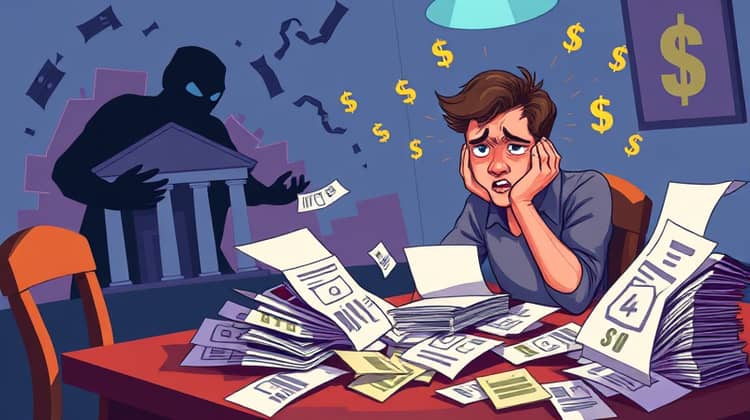Bad Credit Loans: Explore Your Options and Get Approved

Navigating the world of loans can be especially daunting for individuals with poor credit histories. Understanding the nuances of bad credit loans can help you make informed decisions and choose the right financial path. This article will guide you through the essentials of bad credit loans, the types available, factors to consider before applying, and alternate financing options.
In recent years, bad credit loans have gained popularity as more people seek financial assistance despite their credit challenges. Whether for personal needs, emergencies, or consolidating debts, these loans provide opportunities that would otherwise be unavailable to individuals with low credit scores.
Understanding Bad Credit

Bad credit refers to a credit score that is considered lower than acceptable for conventional lending criteria, typically below 580 on a scale of 300 to 850. This score can result from various factors, including missed payments, high debt utilization, defaults, or bankruptcy.
Having bad credit can limit your ability to acquire loans or obtain favorable terms, leading to higher interest rates or outright denials. However, it’s essential to recognize that multiple financial institutions specialize in providing loans for individuals with poor credit histories. They have adjusted their lending approaches to accommodate borrowers who do not meet standard benchmarks.
- Late or missed payments impact your credit score negatively.
- Overutilization of existing credit limits can lead to a lower score.
- Bankruptcy is a significant factor resulting in bad credit.
- Defaulting on loans showcases an inability to repay borrowed money.
Understanding these critical factors will empower you to improve your credit situation and make better financial decisions moving forward.
What Are Bad Credit Loans?

Bad credit loans are financial products specifically designed for borrowers with low credit scores. These loans often come with higher interest rates and less favorable terms than conventional loans due to the perceived risk associated with lending to individuals with poor credit histories.
Despite the drawbacks, bad credit loans can serve various purposes, such as personal loans, auto loans, or debt consolidation, allowing borrowers with poor credit to access funds for crucial needs.
Types of Bad Credit Loans

- Personal loans for bad credit
- Payday loans
- Title loans
- Peer-to-peer loans
- Secured loans
Factors to Consider Before Applying

Before applying for a bad credit loan, it’s vital to assess your overall financial health and affordability. Understanding your income, expenses, and repayment capabilities will help you choose the right loan that aligns with your financial situation.
- Loan terms and conditions should be thoroughly reviewed.
- Interest rates can significantly impact the total repayment amount.
- The lender’s reputation and customer reviews matter.
- Look for loans with no hidden fees or prepayment penalties.
Once you’re thoroughly informed, you can approach lenders knowing what to expect, potentially improving your chances of securing a loan that meets your needs.
How to Increase Your Chances of Approval

Improving your chances of loan approval may require additional steps. Some lenders consider factors beyond just credit scores, such as income and employment history, which can solidify your application despite a poor credit score.
- Check your credit report for errors and correct them.
- Develop a steady employment history to demonstrate financial stability.
- Provide collateral for secured loans to reduce lender risk.
- Consider a co-signer to enhance your credibility as a borrower.
By taking these proactive steps, you place yourself in a stronger position when applying for bad credit loans and increase the likelihood of approval.
Risks Associated with Bad Credit Loans

While bad credit loans can provide financial relief, they are also associated with considerable risks. Many lenders target individuals with low credit scores, often imposing exorbitant interest rates that can lead to a cycle of debt if borrowers are unable to keep up with payments.
Additionally, borrowing more than you can afford can lead to financial strain and stress as you attempt to manage repayments, and it can further damage your credit score if payments become delinquent.
- High-interest rates can escalate the total amount owed.
- Hidden fees can surprise borrowers and complicate repayment.
- Unreputable lenders may employ predatory practices.
- Receiving a loan may lead to an unsustainable debt cycle.
Being aware of these risks allows you to approach bad credit loans with caution, making informed decisions that align with your financial goals.
Alternative Options

If bad credit loans seem daunting or unsuitable, several alternative financing options exist for individuals with poor credit. Exploring these alternatives can be beneficial for borrowers searching for more reasonable terms and conditions.
One option is to consider credit counseling services, which can assist in financial planning and help improve your credit over time. Additionally, borrowing from friends or family might provide a short-term solution without the complications of interest.
- Credit counseling services can improve financial literacy and management.
- Peer-to-peer lending can provide loans at lower rates.
- Payment plans with creditors can help alleviate pressing debt obligations.
- Local non-profit organizations sometimes offer emergency funds.
Exploring these alternatives may lead to more manageable financial solutions than traditional bad credit loans.
Conclusion

Navigating loans in the context of bad credit requires thorough understanding, research, and careful consideration of available options. While bad credit loans can be a viable solution for some, they come with inherent risks that cannot be ignored.
Ultimately, being educated about the different types of bad credit loans, their associated risks, and alternative options empowers borrowers to make informed decisions. It is crucial that potential borrowers carefully weigh their options and consider seeking reputable financial advice when necessary.






